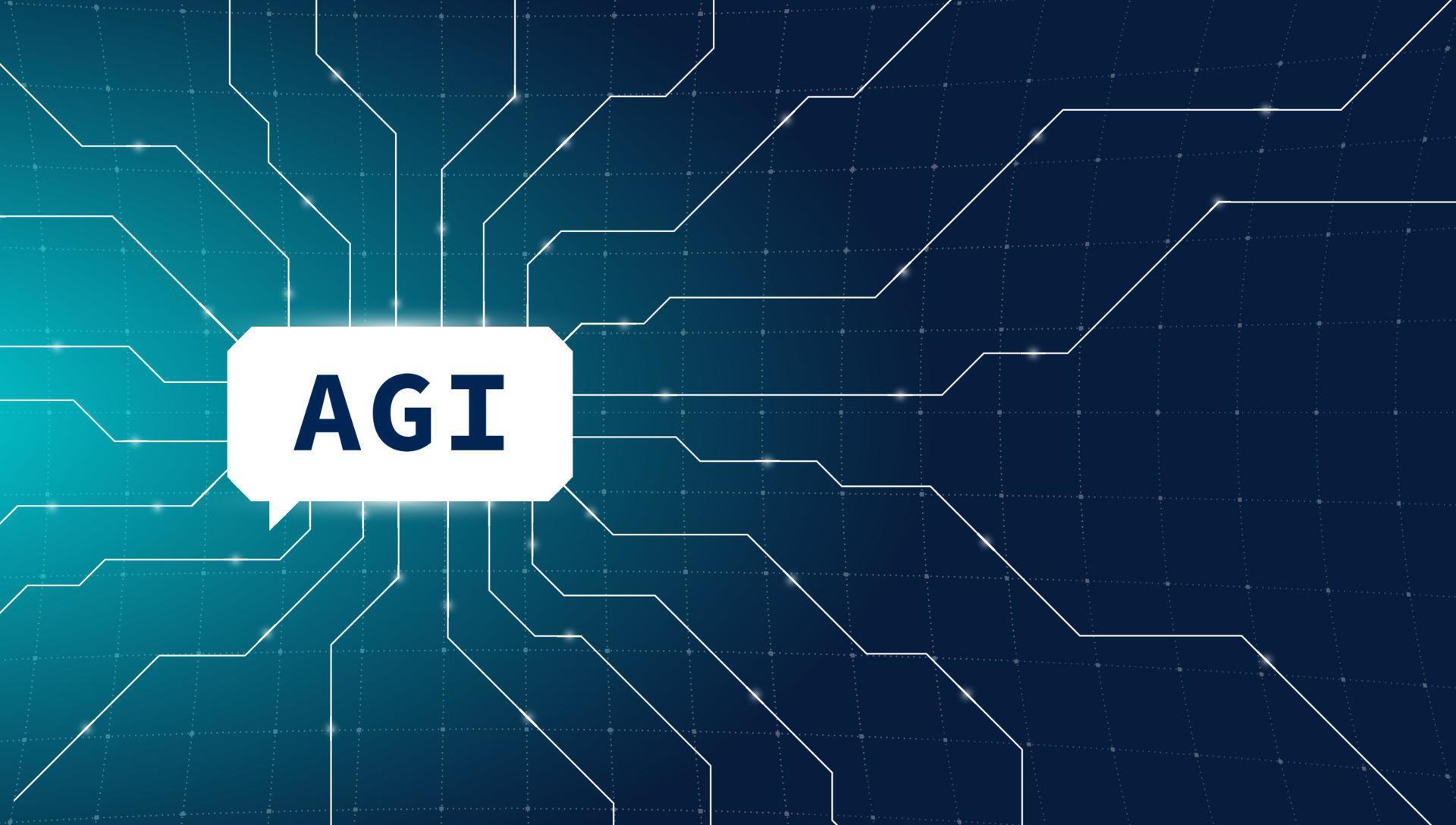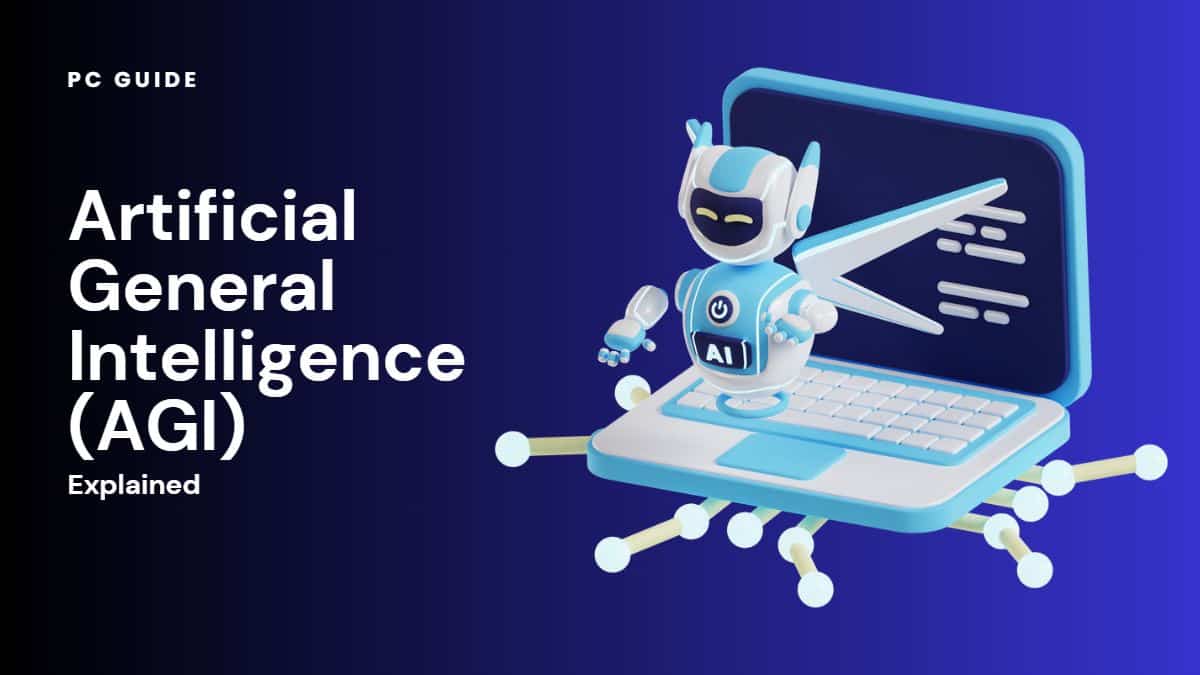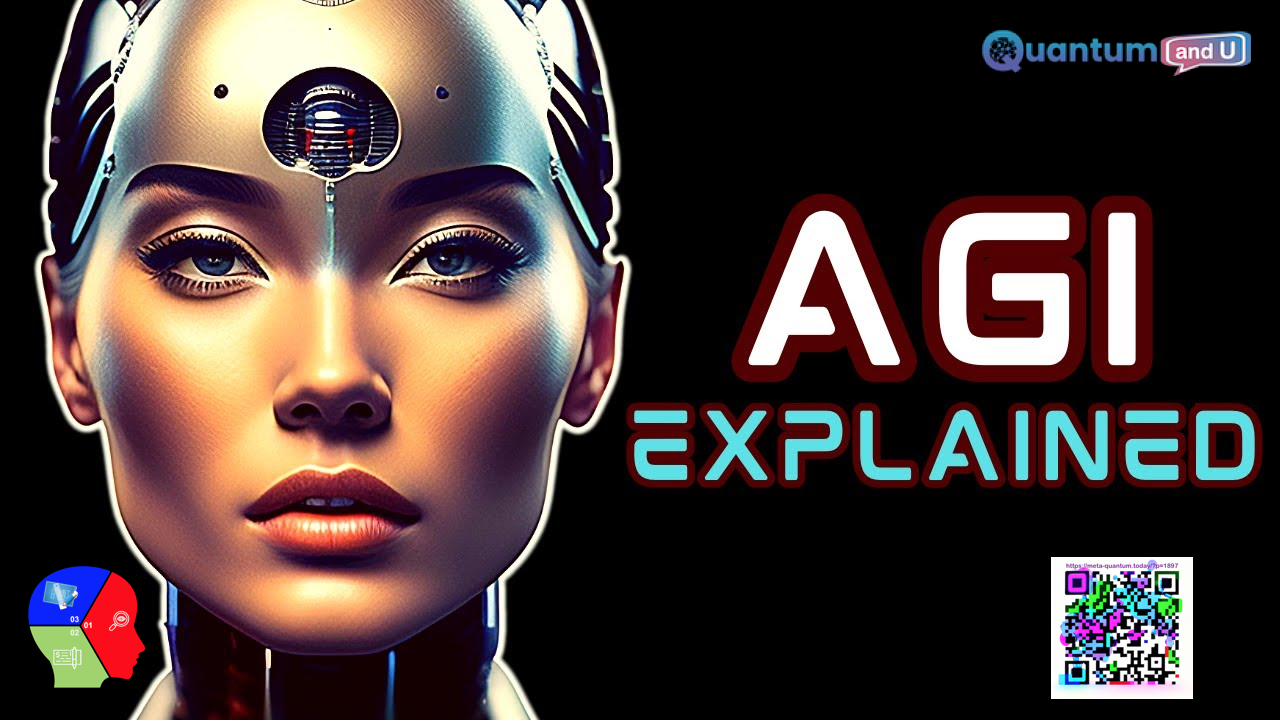AGI Countdown: Decoding The Future Of Human-Level AI
The phrase "AGI countdown" often sparks a lot of conversation, doesn't it? For many, it immediately brings to mind the exciting, sometimes a little bit scary, prospect of Artificial General Intelligence. This is the idea of machines that could truly think like us, or perhaps even better, across a whole lot of different tasks. There's a real sense of anticipation, a kind of clock ticking, as people wonder just how close we are to seeing this profound shift in technology. It's a topic that really gets people talking, and for good reason, too.
You see, the concept of Artificial General Intelligence, or AGI, is rather fascinating. It describes a type of artificial intelligence that would match or even surpass human capabilities across virtually all cognitive abilities. This isn't just about a computer beating a chess grandmaster or creating pretty pictures; it's about a system that could learn, reason, and solve problems in a way that feels very much like a human mind. It's a big step, a truly significant one, that many are watching very closely, you know?
But here's a little twist that sometimes catches people off guard: the acronym AGI actually has another, completely different meaning that's pretty common in another part of life. It also stands for "Adjusted Gross Income," a term that's very much about your money and taxes. So, when someone mentions "AGI," it's worth taking a moment to figure out which "AGI" they're talking about, especially when we're discussing a "countdown." For this piece, we're really going to focus on that thrilling future of human-level AI, exploring what the experts are saying about its timeline and what it might mean for all of us.
- The Enigmatic Journey Of Theo James A Star In The Making
- Qatar Airways Iran Flights
- Pawgedcom
- Is Cal Raleigh Married
- Pok%C3%A9mon Odyssey
Table of Contents
- What is Artificial General Intelligence (AGI)?
- The Other AGI: A Quick Clarification
- The AGI Countdown: How Close Are We?
- Ethical Considerations and Potential Risks
- What's Next for AGI?
What is Artificial General Intelligence (AGI)?
Artificial General Intelligence, often just called human-level intelligence AI, is a pretty big concept. It's a type of artificial intelligence that would match or even surpass human capabilities across virtually all cognitive tasks. This is different from the AI we mostly see today, which is usually very good at one specific thing, like playing chess or recognizing faces. AGI, on the other hand, would possess a much wider range of skills, a truly broad capability, and could learn new things and solve new problems with ease, very much like a person would.
You know, some folks might wonder about the difference between AI, AGI, and AIGC. Well, AI is the broadest idea, covering all sorts of technologies and methods that let machines do smart things. AGI, then, is a more specific goal within AI, aiming for that comprehensive intelligence and general learning ability. AIGC, which stands for AI-generated content, is about using AI to create things like text, images, or videos. So, AGI is really about the brainpower, the core intelligence itself, which is a significant distinction.
The Other AGI: A Quick Clarification
Before we get too deep into the future of human-level AI, it's worth just briefly touching on that other meaning of AGI, because it can be a bit confusing, you know? AGI is simply the acronym for adjusted gross income. It’s a very common term used for tax purposes, so it’s actually quite important to understand what it means and how it's relevant in that context. This is just a completely different area, of course, but the shared acronym can sometimes lead to a moment of "wait, which AGI?"
- Where Is Phoebe Cates Now A Look Into Her Life And Career
- Young Tiger Woods The Rise Of A Golf Legend
- Emily Compagno Husband
- What Does The Term Eiffel Tower Mean
- Is Emily Compagno Married
Your adjusted gross income, or AGI, is basically your total (gross) income from all your sources, but then you subtract certain adjustments. These adjustments might include things like educator expenses, student loan interest, or even alimony payments, and so on. The IRS, for example, uses your AGI as a starting point for figuring out your taxes. It helps them determine how much income tax you actually owe, which is a rather crucial detail for pretty much everyone.
Calculating your AGI is, in fact, easier than you might think, and the IRS even offers a simple online tool to help with that. It plays a big part in tax planning, influencing things like deductions, credits, and your overall financial decisions. To boil it down, it’s simply your total taxable income after those specific adjustments. Gross income, just so you know, includes money from jobs, investments, or other sources. So, while it's a very important concept in personal finance, it's clearly not the "AGI" we're counting down to in terms of artificial intelligence.
The AGI Countdown: How Close Are We?
So, with that little detour out of the way, let's get back to the AGI countdown that really captures our imaginations: the one about artificial general intelligence. People are constantly asking, "How far are we from true AGI?" There's a lot of talk, and a lot of different opinions, about whether 2025 will bring significant technological breakthroughs that get humanity closer to this goal. It's a very active discussion, and for good reason.
Debates and Disagreements
It seems nobody really agrees on when AGI will arrive, and this lack of consensus is, in a way, causing some friction, even tearing apart major players like Microsoft and OpenAI, apparently. There isn't a standard definition for AGI, which, you know, leaves a lot of room for different interpretations and opinions. But one thing is for sure: AGI is considered to be much closer to human-like intelligence, and it would definitely encompass a much wider set of skills than most of the AI we have today. Its arrival would have a truly profound impact on us all.
Some prominent figures in the field believe AGI could appear in as little as five years, and some even suggest it could be here next year! OpenAI's O1 version, for instance, has already made rather significant progress in AI's reasoning capabilities, which is a big step. This kind of progress fuels the excitement and the belief that we might be on the cusp of something truly transformative, very soon.
Technical Bottlenecks and Breakthroughs
Despite the amazing progress we've seen, like large AI models passing lawyer exams or generating incredibly high-quality 4K cinematic video, as with Sora's subsequent technology, the academic community generally agrees that achieving AGI still requires overcoming some core technical bottlenecks. From a 2025 technical perspective, figuring out these key breakthrough routes is pretty much the central challenge. We're talking about things that go beyond just scaling up existing models, you know?
Microsoft China CTO Wei Qing, for example, has raised questions about what it truly means to achieve AGI. François Chollet, a well-known researcher, pointed out back in 2017 that deep learning, for all its power, lacked true generalization ability. He further defined AGI in 2019 as a system that could efficiently acquire new skills and solve new problems, which is a much higher bar than just excelling at specific, pre-defined tasks. This means we need more than just brute force; we need genuine adaptability.
There's also the question of specific advancements, like whether something called Manus marks the arrival of the AGI era. Experts are looking at its leap in end-to-end execution capabilities as a potential indicator. These are the kinds of specific technical achievements that people are watching very closely, trying to piece together the puzzle of AGI's development.
Benchmarking Progress: ARC-AGI and Beyond
To really gauge how far we are, researchers use benchmarks. One notable one is the ARC-AGI benchmark. It's designed to test AI's ability to generalize, something that current deep learning models often struggle with. The tasks in ARC-AGI look a bit like the kind of reasoning puzzles you might find in an aptitude test, relying a lot on human intuition. For an AI, these can be pretty tough, actually.
For instance, if you look at some of the problems from ARC-AGI, they require a kind of flexible thinking, a way of seeing patterns that isn't just about memorizing rules. It's about truly understanding the underlying structure, which is a hallmark of human intelligence. The team behind ARC-AGI even published a blog post detailing their testing process and results, which, you know, contained a lot of valuable information. These benchmarks are crucial because they help us see if AI is truly getting closer to that human-like adaptability and problem-solving ability, or if it's just getting better at specific, narrow tasks.
Ethical Considerations and Potential Risks
As we talk about the AGI countdown, it's also really important to consider the ethical side of things and the potential risks involved. If AGI not only could think but also could "choose" its own actions, and even question whether it needed to follow rules, that would indeed present a truly massive ethical challenge. This isn't just a technical problem; it's a deeply philosophical and societal one.
The idea of an AGI surpassing human capabilities brings up a lot of questions about control, alignment, and what happens if its goals aren't perfectly aligned with human well-being. It's a topic that demands very careful thought and discussion, even as the technology itself is still developing. Thinking about these issues now, before AGI fully arrives, is a rather important step in preparing for a future with such powerful intelligence.
What's Next for AGI?
So, where does all this leave us on the AGI countdown? It seems we're in a period of intense innovation and debate. While large AI models are doing truly incredible things, the consensus among many experts is that true Artificial General Intelligence, that kind of comprehensive, human-level intelligence, still requires significant breakthroughs. The timeline remains a topic of spirited discussion, with some predicting its arrival in just a few years, while others see it as a much longer-term endeavor.
The journey towards AGI is clearly not just about technological advancement; it's also about navigating the complex ethical questions that arise when we consider creating intelligence that could rival our own. As we continue to see progress in areas like reasoning and multi-modal interaction, the conversation around AGI will only grow more intense and more important. To learn more about this fascinating topic, you might want to explore some of the ongoing research and discussions happening in the field of AI, for example, at Nature.com.
We're living through a truly exciting time, with new developments in AI emerging all the time. It's a good idea to stay informed about these changes. You can learn more about artificial intelligence on our site, and perhaps even link to this page for more detailed discussions on specific AI advancements. The future of AGI is still being written, and it's a story we're all a part of, so it's worth keeping an eye on it, isn't it?
- Where Is Phoebe Cates Now A Look Into Her Life And Career
- Young Tiger Woods The Rise Of A Golf Legend
- Roma Downey Feet
- Iran New Currency
- What Was Lol Superman

Vector banner showcasing AGI neural network. Open AI chatbot leveraging

Artificial General Intelligence (AGI) Explained - PC Guide

Artificial General Intelligence (AGI) Simply Explained